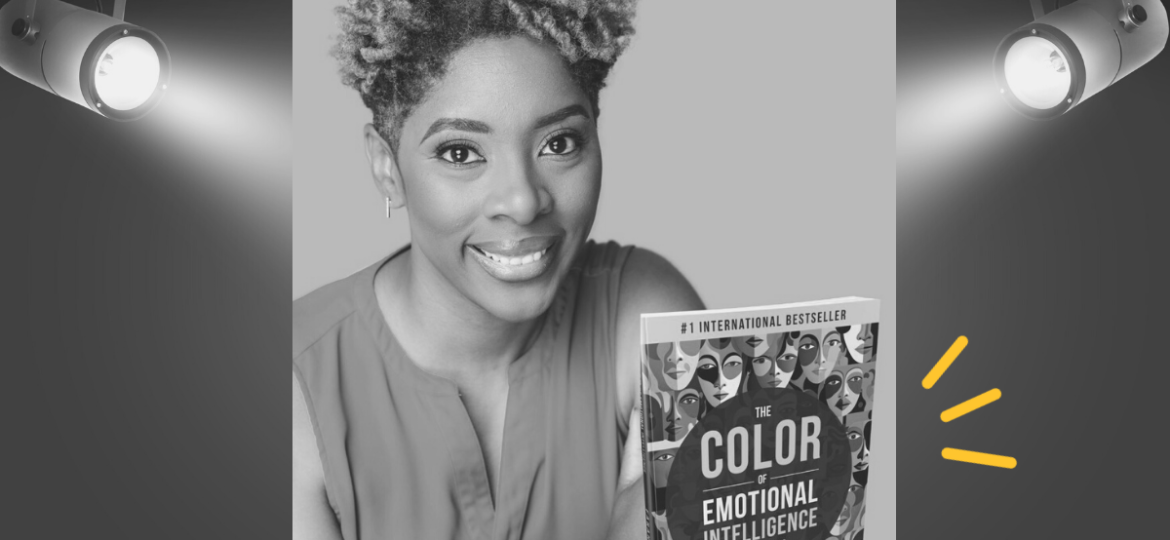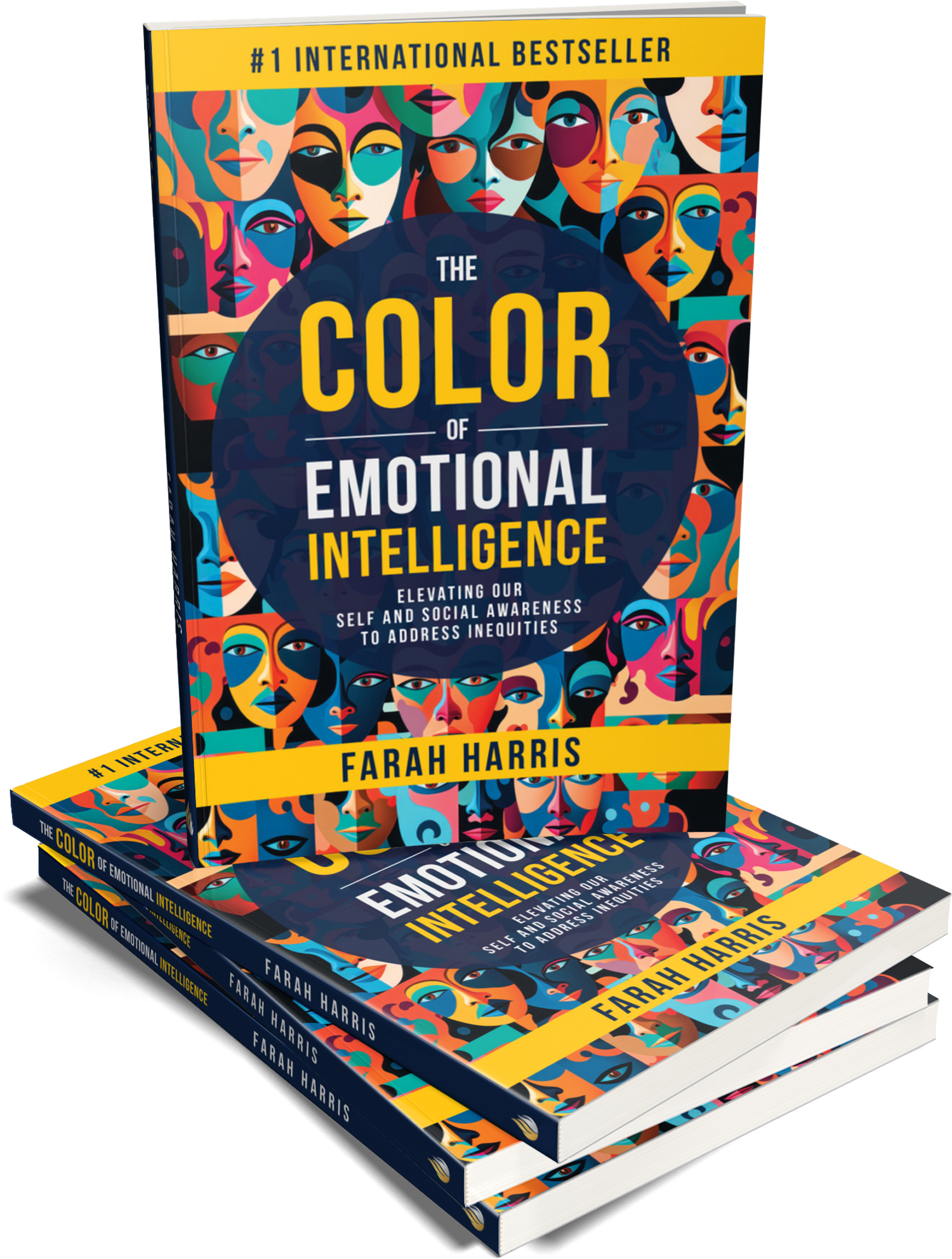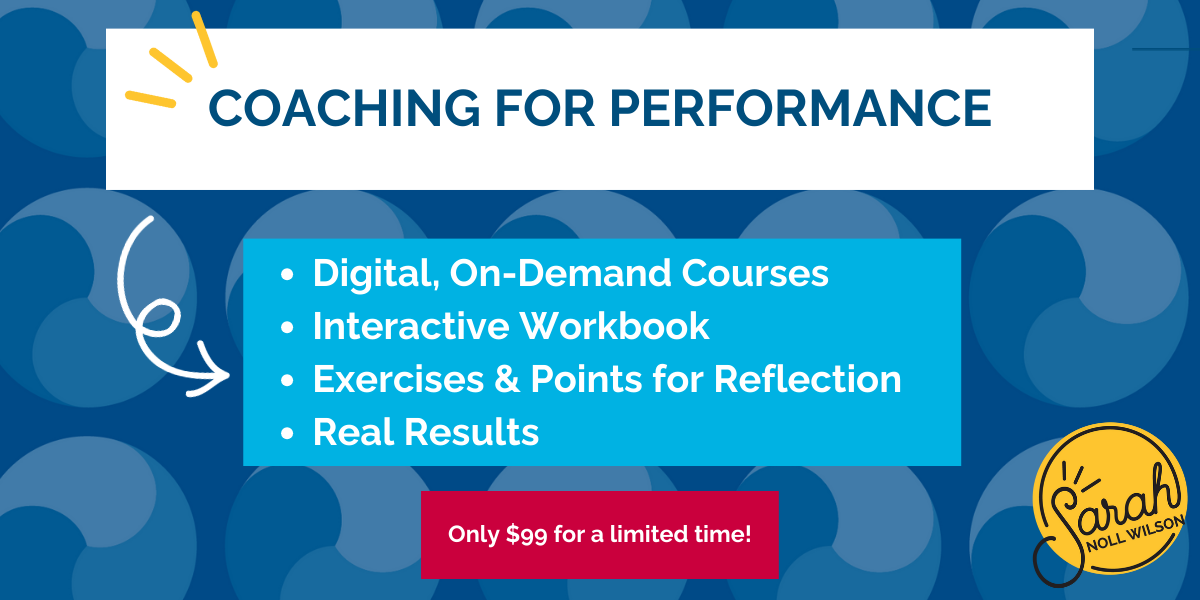
We are constantly on the lookout for opportunities to learn and grow. One such opportunity that has been making a big impact on our team lately is Farah Harris‘ bestselling book, The Color of Emotional Intelligence: Elevating Our Self and Social Awareness to Address Inequities. We think it’s so important that we’re sending the first ten people who reach out to us a free copy (see details below).

What’s the story behind the book? What has become clearer in this larger discussion of emotional intelligence and equity since?
Here’s a Q&A with Farah, who answers those questions (and then some):
Q: Can you talk a little about your personal journey to The Color of Emotional Intelligence? Why did you write this book?
A: The book was birthed from a presentation I did for a corporation in 2020. I was asked to speak to the Black employees post George Floyd’s murder. This organization had already brought in a few therapists and speakers, and I was determined not to recycle the same message they had already heard.
During my intro call with them, I shared the idea of addressing all employees, not just Black employees, on the importance of practicing emotional intelligence (EQ) in times of uncertainty while educating them on how historically marginalized folks use their EQ more for survival than self-care.
After several requests from other companies and institutions for the presentation, I started to think, “Maybe this should be a book.” I structured my book similarly to how I structured my talk in three parts. I’ve stated before that writing this book wasn’t a labor of love but an act of obedience. Although it was clear to me, I realized that the concept of EQ from an equity lens seemed novel to many.
Once introduced to this skillset, I have been on a mission to equip and elevate the EQ of anyone who listened. Because I genuinely believe that it is an essential skill we need to live healthier lives.
Q: What did you find most challenging about bringing this book to life? What about most rewarding?
A: The biggest challenge in bringing this book to life was writing it. I found myself wanting to quit several times. Sometimes, when your mind can easily connect dots, it can be daunting to flush it all out and articulate your thoughts in a way that brings clarity and understanding to the reader. Another concern was losing my voice in the process, that the book would be boring and too academic.
So, besides being published, what has been most rewarding is hearing from readers that they feel they are conversing with me as they read my words. That’s been so dope!
Q: What became clearer to you in the process of writing this book (or what is clearer to you now having written it)?
A: The things that I have yet to flush out further. The insights and feedback that people have shared have helped me see how I could have made it more clear that to have high EQ doesn’t mean that you always have it together. To those who would consider themselves more sensitive and value that aspect of themselves, I do not want them to believe that practicing high EQ equates to being stoic or always calm and collected.
After writing this book, I’ve come up with this gem: You can have a low EQ reaction; just rebound with a high EQ response.
Q: Who needs to read this?
A: I dedicated this book to DEI practitioners and courageous leaders. Emotional intelligence is vital in the world of social justice.
But if I’m honest, this book is for anyone determined to make a better world. We all interact with people every day, whether in person or virtually. Family members, strangers, friends, and co-workers, we are in relationships and engaging with others. Being able to have healthy relationships is important for our well-being, individually and collectively.
Q: If you had to distill it, what are the two or three biggest things you hope readers take away from it (or hope they do/think more about moving forward)?
Understanding the intersectionality of emotional intelligence.
Understanding more of who they are by learning about their emotional history/narrative (i.e., where and how did they first learn about feelings)
Want more?
For more, listen to Farah and Sarah on the Conversations on Conversations podcast:
Episode 004: A Conversation on Boundaries
Episode 055: A Conversation on Emotional Intelligence
BONUS: We’ll send the first ten people who reach out to us a FREE copy of Farah’s book. If you want in, email hello@SarahNollWilson.com. Please include your shipping address.
Sarah Noll Wilson is on a mission to help leaders build and rebuild teams. She aims to empower leaders to understand and honor the beautiful complexity of the humans they serve. Through her work as an Executive Coach, an in-demand Keynote Speaker, Researcher, Contributor to Harvard Business Review, and Bestselling Author of “Don’t Feed the Elephants”, Sarah helps leaders close the gap between what they intend to do and the actual impact they make. She hosts the podcast “Conversations on Conversations”, is certified in Co-Active Coaching and Conversational Intelligence, and is a frequent guest lecturer at universities. In addition to her work with organizations, Sarah is a passionate advocate for mental health.




I would love a copy of this book.
Hi Joleen,
Wonderful! Please email hello@sarahnollwilson.com and include your shipping address. 🙂